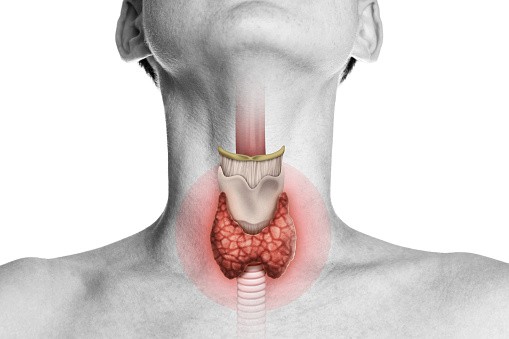
Today I want to share some information about thyroid health with
you. The reason why I think you should know some basic information
about the thyroid is because when it’s not functioning properly,
all sorts of health problems and symptoms can develop.
For example, did you know the thyroid is important for controlling
your metabolism and body weight?
Or did you know that a problem with your thyroid can cause
depression, chronic fatigue, fibromyalgia, heart fatigue, muscle
and joint pains, irritable bowel syndrome, autoimmune disease, and
menopausal symptoms?
The most common signs of a thyroid that isn’t working properly
include:
- weight gain
- lethargy
- poor quality hair and nails
- hair loss
- dry skin
- fatigue
- cold hands and feet
- constipation.
And here are some symptoms that aren’t so common that are
associated with the thyroid:
- high cholesterol
- irregular menstruation
- low sex drive
- infertility
- gum disease
- fluid retention
- skin conditions such as acne and eczema
- memory problems
- poor stamina
The thing is, your thyroid plays a part in nearly every
physiological function in your body, so there can be a lot of
health problems and symptoms associated with an unhealthy thyroid.
Here’s how your thyroid works…
The thyroid gland is in the front of your neck and is part of your
endocrine or hormonal system. It produces the master metabolism
hormones that control every function in your body. The thyroid
hormones also interact with ALL your other hormones.
The fact that your hormones are all tied together and in constant
communication with one another explains why an unhealthy thyroid is
associated with so many health problems and symptoms.
Many people, especially women, have a thyroid that is sluggish and
not as active as it should be. This is called hypothyroidism.
If you think you or someone you know might have a sluggish thyroid,
do the following:
- Assess your own symptoms. Sluggish bowels and constipation are
major clues. Fatigue and sluggishness in the morning are common
too. Low mood and depression are also common. - Check your basal body temperature (BBT). A low temperature,
below 97.6 degrees, is associated with hypothyroidism. Your
temperature must be averaged out for a minimum of 3 days to get an
accurate reading. - Check your family history. Do your parents, grandparents, or
close relatives have thyroid issues? Or how about health problems
or symptoms that are associated with hypothyroidism? - Take an online thyroid assessment quiz as a way to get started.
A good one is at this link:
http://thyroid.about.com/library/hypoquiz/blhypoquizi.htm
- Get lab tests done. Here are the panels you should get done:
- TSH – the high sensitivity version
- Free T4 and Free T3
- Thyroid antibodies, including thyroid peroxidase antibodies and
antithyroglobulin antibodies - For more difficult cases, TRH
If you’d like to continue to learn more about hypothyroidism, you
can get more in-depth information on this article here:
http://articles.mercola.com/sites/articles/archive/2010/01/02/Many-Symptoms-Suggest-Sluggish-Thyroid.aspx
If you or someone you know has thyroid issues, or you think has
thyroid issues, please pass this information on to them so they can
improve their health!
Thanks and talk to you soon,
Dr. Justin Trosclair dc
Download the 4 chapters of my health reboot book for free.
[rainmaker_form id=”2667″]
